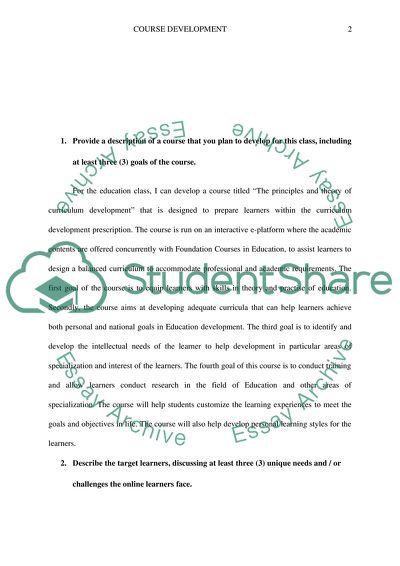Cite this document
(Course Development in Education Assignment Example | Topics and Well Written Essays - 1250 words, n.d.)
Course Development in Education Assignment Example | Topics and Well Written Essays - 1250 words. https://studentshare.org/education/1848445-proposed-course-for-development-part-1
Course Development in Education Assignment Example | Topics and Well Written Essays - 1250 words. https://studentshare.org/education/1848445-proposed-course-for-development-part-1
(Course Development in Education Assignment Example | Topics and Well Written Essays - 1250 Words)
Course Development in Education Assignment Example | Topics and Well Written Essays - 1250 Words. https://studentshare.org/education/1848445-proposed-course-for-development-part-1.
Course Development in Education Assignment Example | Topics and Well Written Essays - 1250 Words. https://studentshare.org/education/1848445-proposed-course-for-development-part-1.
“Course Development in Education Assignment Example | Topics and Well Written Essays - 1250 Words”. https://studentshare.org/education/1848445-proposed-course-for-development-part-1.


